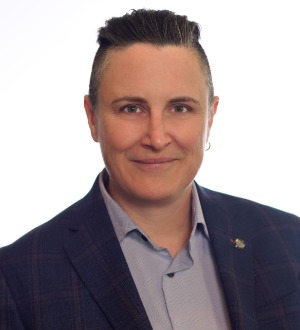On July 20. 2020, the Office of the Comptroller of the Currency (OCC), an independent branch of the U.S. Department of Treasury, issued a proposed rule to address so-called “true lender” issues. The proposed rule provides that in a partnership between a national bank or federal savings association and a nonbank third party, the bank is the “true lender” if, as of the date of origination, the bank is named as the lender in the loan agreement, or alternatively, the bank funds the loan.
In the supplementary information to the proposed rule, the OCC observed that “uncertainty as to the legal framework that applies to the loans made [through a bank partnership] . . . may discourage banks and third parties from entering into relationships, limit competition, and chill the innovation that results from these partnerships—all of which may restrict access to affordable credit.”
This proposed true lender rule, if implemented, will alleviate the uncertainty surrounding the legal framework that applies to bank partnership loans by eliminating fact-intensive inquiries and imposing a largely mechanical test for when a loan will be considered bank-originated.
In its supplementary information, the OCC likewise noted that in the absence of federal guidance, courts have applied “divergent standards” to true lender cases, with some focusing on the form of the transaction while other courts engage in fact-intensive balancing tests that consider a variety of factors, none of which are dispositive. One test, the “predominant economic interest” test, leads courts to look beyond loan documentation and consider the “totality of the circumstances” of the transaction to determine which party has the “predominant economic interest” in the loan. Under this test, that party with the predominant economic interest is the true lender. Courts applying this test, “do not necessarily consider all of the same factors or give each factor the same weight” and that “fact-intensive inquiries, coupled with the lack of a uniform and predictable standard, increase the subjectivity in determining who is the ‘true lender’ and undermine banks’ ability to partner with third parties to lend across jurisdictions on a nationwide basis.”
Accordingly, the OCC proposed a bright-line rule, stating that once a bank is named as the lender in a loan agreement as of the date of origination, the bank has exercised its right to make the loan under authority granted to a national bank and “elected to subject itself to the panoply of applicable federal laws and regulations (including but not limited to consumer-protection laws) governing lending by banks.” It continued: “If a bank funds a loan as of the date of origination . . . it has a predominant economic interest in the loan and, therefore, has made the loan—regardless of whether it is the named lender in the loan agreement...” Finally, the OCC discussed the robust federal regulation and extensive supervision to which banks are subject.
The proposed rule has garnered considerable criticism. In a comment letter to the OCC, the American Bankers Association praised the OCC’s efforts to clarify which party is the true lender in a bank partnership but called the rule overly broad, urging the OCC to consider collaborating with other banking agencies to develop an approach that established minimum expectations for bank and nonbank partnerships.
The New York Department of Financial Services argued in its own comment letter that the OCC lacked the authority to issue the rule because it “failed to comply with the requirements applicable to preemption determinations under federal law and conflicts with Congress’s intent to limit the preemption of states’ consumer protection laws.” It further claimed the “OCC’s rule would, in essence, allow unregulated nonbank lenders to launder loans through banks as an end-run around consumer-protective state usury limits.”
Importantly, the OCC’s proposed rule would not apply directly to state-chartered banks. The Federal Deposit Insurance Corporation, although expected to issue a similar proposed rule, has not yet done so.
Two months after the OCC’s proposed rule was announced, the Attorney General of Colorado, Democrat Philip J. Weiser, entered into an Assurance of Discontinuance (AOD) to resolve longstanding litigation against Avant of Colorado LLC and Marlette Funding LLC, and their partner banks, WebBank and Cross River Bank, both of which are FDIC-insured state-chartered banks. In the underlying enforcement actions against Avant and Marlette, the Colorado Uniform Consumer Credit Code Administrator contended that each entity was the “true lender” of the loans originated by their partner banks because they, not the banks, retained the “predominant economic interest” in the transactions.
The AOD establishes a “Safe Harbor” to originate consumer loans in Colorado pursuant to a bank partnership program. The Safe Harbor is applicable to Avant, Marlette, and any other entity that partners with Cross River or WebBank. Programs that comply with the Safe Harbor will negate true lender challenges, or claims that the non-bank partner or a subsequent assignee was prohibited from enforcing the loans on their original terms. Although the AOD applies only to programs involving WebBank or Cross-River, it’s reasonable to expect that other programs can prospectively rely on the Safe Harbor to guard against regulatory scrutiny. Although the Safe Harbor imposes a rate cap of 36 percent per year and requires the nonbank partner to obtain a license, it has clear terms for compliance and includes certain conditions that are typical in such partnerships. The Safe Harbor potentially creates a straightforward avenue to regulatory compliance in Colorado, a state that has traditionally been hostile to bank partnership programs.
In addition to the rate cap and licensure requirements, key provisions of the Safe Harbor include:
- all aspects of the program must be subject to active supervision by the banks, consistent with applicable banking guidelines, and the bank must retain ultimate approval authority;
- loan agreements, disclosures, and the program website must identify the bank as the lender;
- the bank must fund all loans at origination; and
- there are limitations on the platforms’ ability to commit to purchase certain loans originated by the banks in advance.
Catherine M. Brennan is a partner in Hudson Cook’s Maryland office and chair of the Fintech practice.She assists national and state banks, investment banks, consumer and commercial finance companies, mortgage bankers, installment lenders, and other licensed lenders in the development and maintenance of nationwide consumer and commercial lending programs.
Latif Zaman is an associate in Hudson Cook’s Maryland office.He assists consumer financial services clients on federal and state regulatory compliance matters and investor clients with due diligence of credit and alternative finance programs. He advises on regulatory issues related to bank partnerships and litigation funding programs and advises lenders on choice of law issues.

































